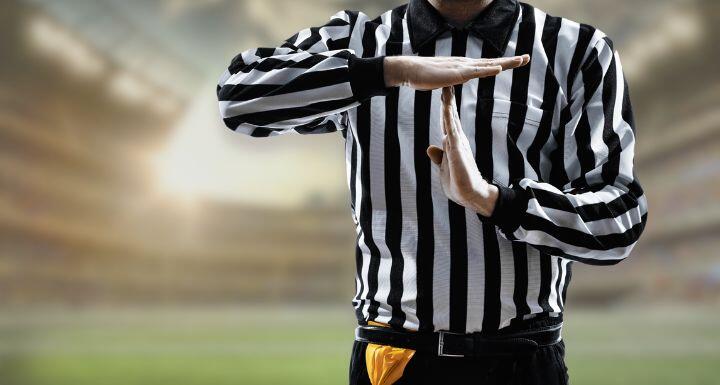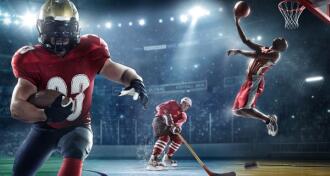Earlier this year, the North Carolina High School Athletic Association (NCHSAA) approved a proposal to adopt a policy allowing name, image, and likeness (NIL) deals for high school student-athletes.
The policy was set to be effective on July 1, 2023, and marked a significant departure from traditional amateurism rules, but NC lawmakers blocked the policy from taking effect.
The concept of NIL refers to the right of an individual to profit from their own name, image, and likeness. The use of a high school student athlete's NIL has historically been restricted by amateurism rules and regulations, preventing college and high school athletes from monetizing their personal brand. However, with multiple states passing new legislation and the evolving NCAA regulations, the NIL landscape has undergone a significant transformation – and the NCHSAA's policy was intended to better align and modernize NC's policies in a similar way.
Members of the North Carolina Senate threw a red flag on the field by introducing a bill amendment that would prevent the implementation of the NCHSAA policy and instead place all authority for such policies with the State Board of Education. The asserted basis for blocking the policy is that the NCHSAA does not have the rule-making authority necessary to allow it to enact the NIL policy or make it effective for the upcoming school year. This means that, at least for now, the NCHSAA's policy is on hold, and the amateurism rules and regulations remain.
Despite these delays, which appear to be over the authority to set the NIL policy and not a rejection of NIL policies, NC is continuing to move towards opening up new opportunities for student-athletes to benefit from their personal brands and athletic talents. These student-athlete opportunities will, in turn, create opportunities for NC businesses.
Benefits: Unleashing Potential
- Financial Opportunities: Approving NIL deals for student-athletes opens up new financial opportunities. Athletes would be able to engage in various commercial ventures, such as endorsements, sponsorships, and social media promotions, which can provide them with additional income, and for the businesses working with them, entry and access into an expanded, potentially untapped market.
- Skill Development and Entrepreneurship: Allowing high school athletes to enter into NIL deals promotes skill development beyond the field or court. By participating in negotiations, managing contracts, and building their personal brands, these athletes gain valuable entrepreneurial skills that can benefit them in their future endeavors.
- College Recruitment and Preparedness: Introducing NIL deals at the high school level may affect college recruitment processes. Student-athletes who have navigated NIL opportunities in high school will be better prepared to handle similar situations in college, giving them a competitive advantage when attracting scholarship offers.
Challenges: Striking the Right Balance
- Equity and Fairness: These NIL policies for student-athletes also raise questions about equity and fairness in high school sports. Not all athletes will have the same access to NIL opportunities, potentially widening the gap between those who can capitalize on their personal brand and those who cannot. Addressing these concerns and ensuring equal opportunities for all student-athletes will be crucial moving forward.
- Regulation: With the introduction of NIL deals, it becomes imperative to establish guidelines and regulations to protect student-athletes and the integrity of high school sports. There must be clear rules to prevent exploitation, conflicts of interest, and any form of unfair advantage that could compromise the student-athlete or the amateur nature of high school athletics.
- Compliance: North Carolina is not in the minority; many states, in response to this shifting landscape, are passing legislation or are taking administrative actions to grant student-athletes the right to profit from their NIL. The result is a patchwork of state-level NIL laws creating complexity and confusion, particularly for businesses operating across state lines. Establishing uniform guidelines could provide a cohesive framework for athletes, schools, and businesses operating across different jurisdictions.
Conclusion
Even if on hold for now, the NCHSAA's adoption of a policy allowing NIL deals for high school athletes in North Carolina reflects the evolving landscape of student-athlete compensation and recognizes the value of their personal brands. These NIL policies will open doors for student-athletes to benefit financially while pursuing their athletic passions. However, as the State Board of Education further refines the NCHSAA's policy, careful consideration of academic priorities, implementing safeguards, and collaboration among stakeholders are essential elements in creating a fair and balanced environment.
Ward and Smith's NIL attorneys are here to help businesses and stakeholders alike navigate these evolving rules. We have the experience to assist with everything from contract negotiation to compliance and enforcement. Contact us today to learn how we can help you meet your NIL needs.








